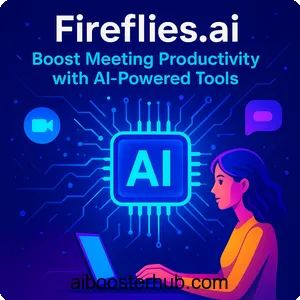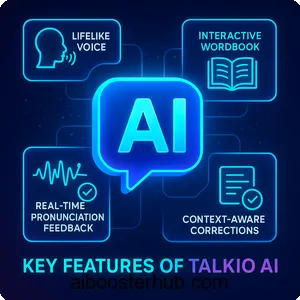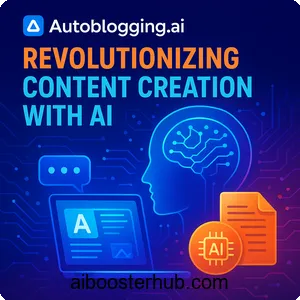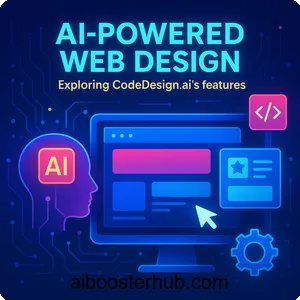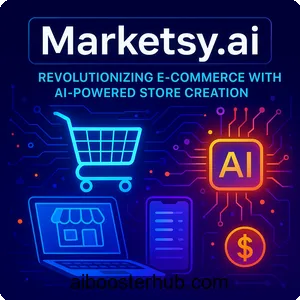Enterprise AI solutions – Scale your operations
Enterprise AI solutions are at the forefront of this revolution, enabling organizations to harness the power of AI to scale their operations efficiently. From automating routine tasks to unlocking deep insights from data, AI solutions for enterprise are reshaping industries and redefining competitive advantages. This article explores the transformative potential of AI enterprise solutions, their key benefits, and how businesses can leverage them to stay ahead in a dynamic market.
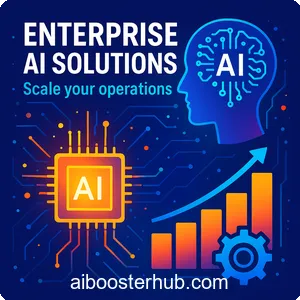
Content
Toggle1. Understanding enterprise AI solutions
What are enterprise AI solutions?
Enterprise AI solutions refer to AI-powered tools, platforms, and systems designed to address the unique needs of large organizations. Unlike consumer-focused AI applications, these solutions are tailored to handle complex, large-scale operations, integrating seamlessly with existing enterprise systems. They encompass a wide range of technologies, including machine learning, natural language processing, computer vision, and predictive analytics, all customized to solve business-specific challenges.
These solutions are built to scale, ensuring they can manage vast datasets, support multiple users, and adapt to evolving business demands. Whether it’s optimizing supply chains, improving customer experiences, or enhancing cybersecurity, AI solutions for business empower organizations to operate smarter and faster.
Why enterprises need AI solutions
In today’s fast-paced business environment, enterprises face increasing pressure to innovate, reduce costs, and deliver exceptional value to customers. Traditional methods often fall short in handling the volume and complexity of modern data. AI enterprise solutions bridge this gap by automating repetitive tasks, providing actionable insights, and enabling data-driven decision-making. By adopting business AI solutions, companies can unlock new levels of efficiency, agility, and competitiveness.
2. Key benefits of AI solutions for enterprises
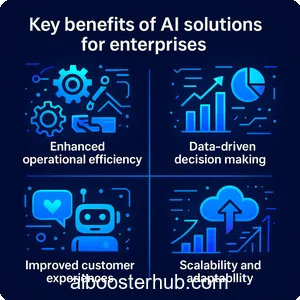
Enhanced operational efficiency
One of the primary advantages of enterprise AI solutions is their ability to streamline operations. AI-powered automation can handle repetitive tasks such as data entry, inventory management, and customer support inquiries, freeing up human resources for more strategic roles. For example, AI-driven robotic process automation (RPA) can process invoices, manage payroll, or schedule tasks with unmatched speed and accuracy, reducing operational costs and errors.
Data-driven decision making
Enterprises generate massive amounts of data daily, but extracting meaningful insights can be challenging. AI solutions for enterprise leverage advanced analytics and machine learning to process and analyze data in real time, uncovering patterns and trends that inform strategic decisions. From predicting market demand to identifying potential risks, these solutions empower leaders to make informed choices with confidence.
Improved customer experiences
Delivering personalized and seamless customer experiences is critical for enterprise success. AI enterprise solutions enable businesses to understand customer preferences, anticipate needs, and provide tailored solutions. For instance, AI-powered chatbots can engage customers 24/7, while recommendation engines use predictive analytics to suggest products or services, boosting customer satisfaction and loyalty.
Scalability and adaptability
Unlike traditional software, AI solutions for business are designed to scale with organizational growth. Whether a company expands its operations or enters new markets, AI systems can adapt to changing requirements without significant overhauls. Cloud-based AI platforms, for example, offer flexible deployment options, ensuring enterprises can scale their AI capabilities as needed.
3. Applications of AI enterprise solutions across industries
Healthcare
In healthcare, enterprise AI solutions are revolutionizing patient care and operational efficiency. AI-powered diagnostic tools analyze medical images to detect diseases with high accuracy, while predictive models help hospitals manage patient admissions and optimize resource allocation. Additionally, AI-driven virtual assistants streamline administrative tasks, allowing healthcare professionals to focus on patient care.
Finance
The financial sector relies heavily on AI solutions for enterprise to enhance security, streamline operations, and improve customer service. AI algorithms detect fraudulent transactions in real time, while automated systems handle loan approvals and risk assessments. Chatbots and virtual advisors also provide personalized financial advice, enhancing customer engagement.
Retail and e-commerce
Retailers use business AI solutions to optimize inventory, personalize marketing, and improve customer experiences. AI-driven demand forecasting ensures optimal stock levels, reducing waste and costs. Meanwhile, recommendation engines and targeted advertising campaigns leverage customer data to drive sales and build brand loyalty.
Manufacturing
In manufacturing, AI enterprise solutions enable predictive maintenance, quality control, and supply chain optimization. AI systems monitor equipment performance to predict failures before they occur, minimizing downtime. Computer vision technology ensures product quality by detecting defects, while AI-driven logistics optimize supply chain efficiency.
Logistics and supply chain
AI solutions for business are transforming logistics by optimizing routes, reducing fuel consumption, and improving delivery times. AI-powered systems analyze real-time data, such as weather conditions and traffic patterns, to ensure efficient operations. Additionally, AI enhances supply chain transparency, enabling enterprises to track goods and manage risks effectively.
4. Choosing the right AI solutions for your enterprise
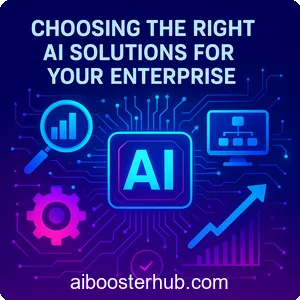
Assessing business needs
Selecting the right enterprise AI solutions begins with understanding your organization’s specific challenges and goals. Conduct a thorough assessment of your operations to identify areas where AI can deliver the most value, such as automating repetitive tasks, improving data analysis, or enhancing customer interactions.
Integration with existing systems
For AI solutions for enterprise to be effective, they must integrate seamlessly with existing infrastructure. Choose solutions that are compatible with your current software, databases, and workflows. Cloud-based AI platforms often offer greater flexibility, allowing enterprises to integrate AI without disrupting operations.
Vendor reliability and support
Partnering with a reputable AI vendor is critical to success. Look for providers with a proven track record in delivering AI enterprise solutions and robust support services. Ensure the vendor offers training, customization, and ongoing maintenance to maximize the value of your AI investment.
Scalability and future-proofing
As your business grows, your AI solutions must keep pace. Opt for platforms that offer scalability and adaptability to accommodate future needs. Modular AI systems, for example, allow enterprises to add new features or expand capabilities without requiring a complete system overhaul.
5. Overcoming challenges in implementing AI enterprise solutions
Data quality and accessibility
AI systems rely on high-quality data to deliver accurate results. Enterprises must ensure their data is clean, organized, and accessible. Investing in data management tools and processes is essential to maximize the effectiveness of AI solutions for business.
Workforce adoption
Transitioning to AI-driven processes can face resistance from employees unfamiliar with the technology. To address this, enterprises should invest in training programs to upskill their workforce and foster a culture of innovation. Demonstrating the benefits of business AI solutions, such as reduced workloads and improved outcomes, can encourage adoption.
Ethical considerations
AI implementation raises ethical concerns, such as data privacy and algorithmic bias. Enterprises must prioritize transparency and fairness in their AI systems, adhering to industry regulations and best practices. Regular audits of AI algorithms can help identify and mitigate potential biases.
Cost and resource allocation
While AI enterprise solutions offer significant long-term benefits, the initial investment in technology and expertise can be substantial. Enterprises should develop a clear roadmap for AI adoption, prioritizing high-impact projects and leveraging cloud-based solutions to manage costs effectively.
6. The future of enterprise AI solutions
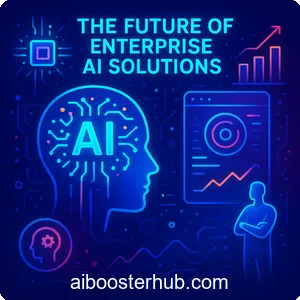
Advancements in AI technology
The future of enterprise AI solutions is bright, with ongoing advancements in machine learning, natural language processing, and generative AI. These innovations will enable more sophisticated applications, such as autonomous decision-making systems and hyper-personalized customer experiences.
Wider adoption across industries
As AI technology becomes more accessible, AI solutions for enterprise will see broader adoption across sectors. Small and medium-sized enterprises (SMEs) will increasingly leverage AI to compete with larger organizations, democratizing access to advanced tools and capabilities.
Collaboration between AI and human expertise
The most successful enterprises will combine business AI solutions with human creativity and expertise. AI will augment human capabilities, enabling employees to focus on strategic tasks while AI handles data processing and routine operations. This collaboration will drive innovation and growth across industries.
7. Getting started with enterprise AI solutions
Building a roadmap for AI adoption
To successfully implement enterprise AI solutions, enterprises should develop a clear strategy. Start with pilot projects to test AI applications in specific areas, such as customer service or supply chain management. Evaluate the results and scale successful initiatives across the organization.
Partnering with AI experts
Collaborating with AI consultants or vendors can accelerate the adoption of AI solutions for business. These experts can provide insights into best practices, help customize solutions, and ensure smooth integration with existing systems.
Measuring success and ROI
To gauge the impact of AI enterprise solutions, enterprises should establish key performance indicators (KPIs) such as cost savings, productivity gains, or customer satisfaction improvements. Regularly monitor these metrics to assess the return on investment and identify areas for further optimization.
Continuous learning and improvement
AI is an evolving field, and enterprises must stay updated on the latest developments. Encourage a culture of continuous learning by investing in employee training and staying informed about emerging AI trends. This proactive approach ensures your business AI solutions remain competitive and effective.
8. Conclusion
By embracing enterprise AI solutions, organizations can unlock new levels of efficiency, innovation, and growth. From automating processes to delivering personalized customer experiences, AI solutions for enterprise are transforming how businesses operate. By carefully selecting and implementing these solutions, enterprises can scale their operations, stay ahead of the competition, and thrive in an AI-driven world.


